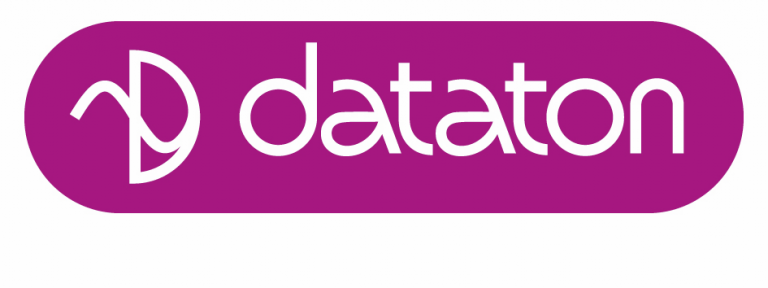
According to AVIXA™, the global professional AV Industry will reach a staggering USD 325 billion in 2024. And 2020 started off quite well… before we learned a new word: Covid-19, coronavirus.
Let’s start with a quick look at the reasoning behind the AVIXA numbers, published before coronavirus made the headlines. AVIXA’s “2019 AV Industry Outlook and Trends Analysis” states that the demand for pro-AV products and services is driven by a global rise in GDP (Gross Domestic Product), because the pro-AV industry provides solutions to almost all facets of the economy. The forecast shows that Asia-Pacific is overtaking the Americas as the largest revenue-producing region, while all markets globally will show growth.
Commercial Integrator published their annual outlook for the AV industry late 2019, titled State of the Industry 2020: Don’t Get Too Comfortable, saying: “The commercial AV industry saw continued growth and success in 2019 and is expected to again this year. While we all enjoy this recent success, it is important to be well-prepared for what may be on the horizon.” The report in full can be downloaded from here: Commercial Integrator.
Edit: At time of writing this (3rd March) it seems that their Executive Editor D. Craig MacCormack did have access to a rather accurate crystal ball…
Professional audio-video installations and products are no longer the icing on the cake but an integrated, integral part of any business’ operation. “We’ve become a necessity. We’re not a luxury anymore. There’s a luxury layer to what we sell but nobody can operate a business today without AV,” said Dave Labuskes, AVIXA CEO.
The two fastest growing segments of professional AV are without doubt unified communications and digital signage. The Pro-AV market will also continue its path on standardization and increased focus on selling managed services. Fred D’Alessandro, founder and CEO of Diversified commented to Commercial Integrator: “We’re really looking to make it easy for customers to purchase those assets and manage them for them”.
Reports from both AVIXA and NSCA (National Systems Contractors Association) forecast a strong and healthy industry with growth through the coming years. NSCA’s most recent Electronic Systems Outlook anticipates a “really strong” industry through 2021, according to executive director Chuck Wilson, but the NSCA leadership are at the same time advising members to think about scenarios of actions to take when backlogs start eroding. It seems to be more a “lesson learned” from the last financial crisis than their view on the years to come.
While the arrows point upward in a strong growing global market, there are always going to be challenges ahead. Some of the issues mentioned are:
Being able to recruit in a growing market is a challenge. Both the AVIXA and NSCA reports indicate that most companies in the AV industry face a challenge when it comes to hiring qualified candidates who do not demand a too-high salary. In fact, almost 75% responded that candidates are simply not available and about 15% responded that the qualified candidates are available, but ask too much. It seems to be happy days for those interested in a career change. With so many reporting this to be a challenge, the report was surprised that many companies do not offer internships or even plan to use intern programs to secure their staff growth.
Another perceived challenge is the fact that AV companies lack IT competence and skilled IT personnel. More than 50% report that their staff level related to training and readiness for IT, as well as security installations, is not ready.
“Times have been so good, so I don’t know if people remember the bad times,” — Chuck Wilson, Executive Director of NSCA (quoted in the Commercial Integrator report).
While the past few years have shown a positive growth in all regions of the world, one of three economists noted a likelihood of recession or decline in the economy in 2020, according to AVIXA’s David Labuskes. “There is a pretty broad consensus about a slowdown in the economy” in the next 12 months,” said Labuskes to the 2020 State of the Industry by Commercial Integrator.
Almost 75% of the respondents to “When do you expect the next economic recession” said it would happen in 2021, beyond or never (2%), and almost 60% of them responded that they were taking measures to prepare for the next recession, by either adding more staff (11.2%) or “trying to secure as much work as possible” (58.2%).
“You have to diversify into economically insensitive vertical markets,” said Chuck Wilson. That means not only working in AV, but also data, life safety and other tangential markets. “If we’re crossing the chasm of all these areas, you spread out the risk.”
Honestly, I am quite baffled by those who hire more staff in order to prepare for a recession, unless the reason you’re hiring is to secure a broader industry focus for your company. In my books, increasing staff will make you more prey to recession rather than being prepared for it.
One of the fastest growing companies in the AV industry, Diversified, feels confident in case of an upcoming recession: “Our revenue comes from many industries, many different types of customers and different technologies. (…) We run on the lean side anyway, so that helps us prepare for it. We don’t have to have these drastic cuts and layoffs like some other companies that run a little fat,” said Fred D’Alessandro, founder and CEO to the Commercial Integrator/NSCA report. The President of Diversified, Kevin Collins added that their size and global reach would also help them: “If we have a recession in North America, we can help offset some of that by establishing ourselves in some of these other markets” (referring to Asia Pacific specifically).
Most AV projects are short-term and typically an installation/setup, not including any kind of service or managed services contracts. D’Alessandro of Diversified comments that “some of our projects are three and four years in length” and the report shows that most AV related business is done without managed services contracts.
When I first started drafting this article, few people had heard of Covid-19 and even fewer had foreseen the impact it has on the global economy, as well as the AV industry.
The attendance figures of Integrated Systems Europe in February were down from more than 81,000 to 52,000, with the drop attributable to the virus, as well as Storm Ciara. With fewer people thronging the aisles, people nudging elbows in greeting, the whiff of hand-sanitiser, and a food court where the LG booth used to be, the situation was hard to miss. The virus is impacting industry trade shows this spring, too. Prolight+Sound has now been postponed to the end of May. Messe Frankfurt also rescheduled the Light+Building fair to October. The Geneva International Motor Show, Mobile World Congress, and Cisco Live are among the events that have been cancelled and the list seems to get longer by the day.
All around the world, schools and factories are shut down or have changed what they produce. Samsung and LG have shut down factories in South Korea for disinfection in an effort to reduce its spread. Sharp announced earlier that it will switch part of its LCD display production to face masks, in response to Japanese government calls for more masks.
Industry veteran Kenneth Cheung, who formed his company AV Technique in Hong Kong back in 1979, comments on the situation: “The AV industry in the most affected areas of Asia is still reeling from the coronavirus outbreak last December. LED and light shows scheduled for February and March have been cancelled or postponed to the end of April. InfoComm China Beijing in April has been postponed with no new date yet set; InfoComm Southeast Asia pushed back to July. AV-wise, projects are being postponed while installation jobs are ongoing, but the delivery dates are delayed. The optimistic view is that business will return to normal at end of April.”
The situation is developing rapidly with new recommendations and measures every day regarding travel, public gatherings, and even how we work. Let’s hope that the situation will soon be under control, and that you all will stay (at least physically) unaffected by the virus, and that we all can get back to our AV-lives as normal. But it is clear that this has, and will likely continue to have, an impact on our industry. Only time will show how big an impact.
David Aleksandersen

David Aleksandersen has extensive experience from the audiovisual industry and is an active blogger. He has been responsible for developing and executing marketing, sales and initiatives in knowledge transfer and partner training for more than 20 years. David has held positions such as Marketing Manager of Dataton, CEO of Nordic Media Lab, Product Marketing Manager at Barco/projectiondesign and is currently business advisor at MarkedsPartner.

Also by News & Views by Dataton:
What Every Media Server Operator Should Know


The News&Views blog is created by Dataton, and is about multi-display software and surrounding technologies, media servers, content creation - basically anything within the AV industry that serves to enrich the audience experience! Dataton has provided outstanding products to the audiovisual industry for over 40 years and is the maker of the WATCHOUT production and playback system. WATCHOUT systems are used globally in performing arts venues for scenic projection – in theatre, dance, and musical performances. We first started publishing News&Views, with content reflecting the world of multimedia communication, back in the 80s!
Read Full Profile© 2021 TheatreArtLife. All rights reserved.

Thank you so much for reading, but you have now reached your free article limit for this month.
Our contributors are currently writing more articles for you to enjoy.
To keep reading, all you have to do is become a subscriber and then you can read unlimited articles anytime.
Your investment will help us continue to ignite connections across the globe in live entertainment and build this community for industry professionals.